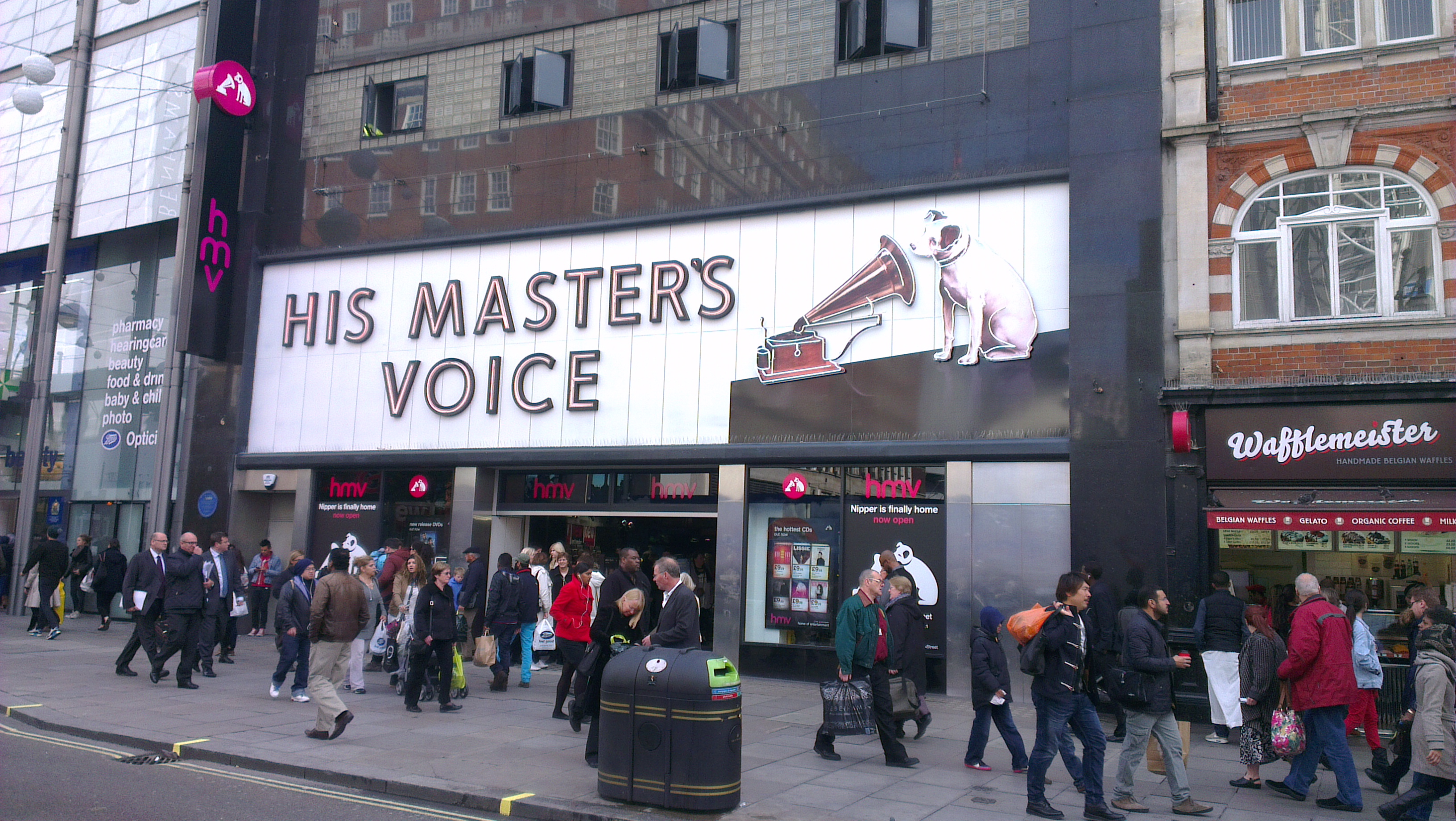Saturday Deluxe / 29 December 2018
HMV – The Dream Is Over

The news about HMV is grim and the strength of feeling on this issue is obvious by the number of comments on yesterday’s post.
It’s a difficult area to analyse properly because emotion and nostalgia muddy the waters somewhat. The truth is, HMV is a bit like an old flame who you once loved dearly but have long since moved on from. If we do lose HMV from the high street, I will be remembering the good times – for me the 1980s and 1990s – and they really are just memories, with not even a faded photo as evidence of all those hundreds (probably thousands) of visits.
I very rarely go into an HMV these days for a number of reasons:
- There isn’t one anywhere near me. I have to journey half an hour or so and pay £5 to travel there via public transport
- With a busy family and work life I do much of my music browsing online, often in the evening (perhaps sitting in front of the TV). This is the convenience factor. Obviously, if you see something you like it’s oh-so-easy to click and purchase.
- While the music section of HMV has definitely improved in recent years, the overall shopping experience isn’t great. DVDs and Blu-ray still take up the ‘premium’ shop floor space, with music relegated to the back/upstairs.
- The ‘surprise’ factor has disappeared. For anyone looking for interesting product beyond the charts or 2-for-£10 type sales, with so much information available online and everyone plugged into artists’ social media channels, the likelihood is that you already know about that limited edition coloured vinyl, or the new box set.
Having said all of that, I will almost always pop in to an HMV if I’m in the vicinity. Even if the CDs in the racks are all largely familiar, there’s still a pleasure in walking up and down an artist ‘A-Z’ section and seeing actual, not virtual, product.
There’s lots of talk about HMV not being able to compete with internet pricing, but funnily enough, for me, price isn’t necessarily the big driver from HMV stores to online. For example, I bought the deluxe CD edition of Elvis Costello‘s new album in HMV a while back. I think it was £12.99. If I had taken my iPhone out and seen it for £11.99 on Amazon, I would still have bought it from HMV because, well ‘I’m here and I have it in my hand, I can play it when I get home.’
And this brings us to the economics of the situation. Why should in-store HMV try to price match online Amazon? The HMV website probably should, but I would argue in-store doesn’t need to. What’s wrong with a small premium, in return for the customer experience of being in the shop, having staff to ask questions to, and being able to take home the product there and then? If a CD is £9.99 online then £10.99 in-store doesn’t sound so bad. Are consumers really that price sensitive these days? Also, anything under £20 on the HMV website requires paying for postage, which often isn’t factored in.
The counter argument is that HMV shouldn’t have two different prices for the same product online and in-store. I say, why not? As with my experience with Costello, if you have gone to the trouble to be in the shop in the first place and you have something you want to buy in your hands, then half the battle is won, surely?
Such debate is perhaps irrelevant, because HMV is in the unenviable situation of selling two physical products that, thanks to technological innovation, can now be delivered via streaming. I refer of course to CDs and DVD/Blu-ray. As the CD market started to decline in a post Napster era of iTunes and more recently Spotify, HMV saw DVD as a way to keep the income and the profits coming in. Multi-season box sets of Breaking Bad, The Office, Only Fools And Horses, Friends, Dexter and many more would literally be stacked up on the shop floor and sell for the £40-50 mark (maybe more). That market has been decimated very quickly, by the likes of Netflix, Now TV and iPlayer and has fallen over 30 percent in the last year, alone.
HMV apparently sat back and failed to see the threat of digital to CDs, and they’ve effectively done the same again, with DVD and Blu-ray. Where was the planning to ensure history didn’t repeat itself? Is there anything that could have been done?
In reality, HMV was probably always doomed. The business model has remained broadly the same, while the world changed around them. People who still love CDs, vinyl and physical product should be their saviour, but there are simply not enough of them – and they are not visiting HMV shops, probably for similar reasons to the ones I listed above. And even much of that group don’t consider music a luxury product – something they will pay a premium for – so the margins enjoyed in other retail sectors like electronics, fashion, jewellery, and the like, simply don’t exist. The very casual CD buyer may well be picking up his or her copy of The Greatest Showman in Sainsbury’s while doing the weekly shop and then those who aren’t bothered about owning the physical product use Spotify or download (legally or otherwise). HMV can only derive income from the first of those three and for that reason the HMV website might still survive, even if the shops disappear from the high street.
But let’s get real. The days of ‘Last Christmas’ selling a million copies at around a £1 per seven-inch single are long gone. Think of the money that was made. That’s a million pounds of income for the industry from ONE SEVEN-INCH SINGLE. This was the same year that ‘Two Tribes’ was number one for nine weeks, selling a similar amount of 12-inch singles at £2.99 each. Massive sales, generating enormous income, funding gigantic mega-stores. Those sales have gone, the income with it, but we expect the mega-stores with their enormous rents and fixed costs to survive?
The dream is probably over for HMV but our passion for music endures. Smaller independent shops and online options (both big and small) will remain and hopefully thrive. For now, I remember my old flame, who lived in Oxford Street, very fondly.





By Paul Sinclair
186